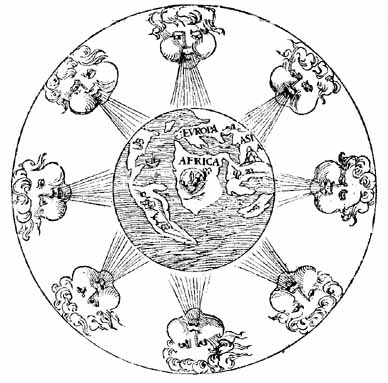Series "Global Concepts? Keywords and Their Histories in Asia and Europe" - Oct. 2010-Jan. 2011 - University of Heidelberg
Organizers: Prof. Dr. Monica Juneja, Prof. Dr. Joachim Kurtz, Dr. Susan Richter
Studies of transcultural processes involve writing about different cultures in a single language. Yet if meaning comes to be configured through language, the transcultural exercise does not precede conceptual categories but is dependent on them. This lecture series interrogates the validity of the analytical concepts that make up our academic vocabulary and function as lenses through which sources in different languages are read, interpreted and recast within monolingual narratives. Can the dynamics of societies across the globe be grasped using key concepts that have crystallized on the basis of the West European trajectory? And do these concepts inevitably bear the imprint of their parochial origins or can they be reformulated so as to reflect the plurality of historical experiences which transcultural studies attempt to capture?
The Series “Global Concepts? Keywords and Their Histories in Asia and Europe” will explore questions such as these from a variety of disciplinary and regional perspectives. While existing semantic histories of the key concepts structuring academic discourse are devoted to developments within individual languages, the series aims to shed light on processes of translation, adaptation and domestication that transgress linguistic and cultural boundaries.
The seven sessions are designed as a series of panels, each comprising of three experts with different areas of specialization. Each panel will trace the semantic histories of a pair of keywords in more than one cultural context, and discuss issues such as semantic shifts and their consequences, the fixity of distinctions between the emic and etic, and ways in which these processes themselves have been shaped through transcultural interactions. By focusing on the transcultural dynamics of concept formation, the series hopes to contribute to a more credibly global lexicon able to respond to the challenge of cultural plurality.
Programme (all panels will take place from 18-20 hrs in Room 212, Karl Jaspers Centre, admission free)
28.10.10 Culture/Civilization
Speakers: “On the Dialectics of Culture and Civilization”, Paul Geyer, University of Bonn
“Civilization, Custom, Culture: Three Concepts of Freedom in Colonial Bengal“, Andrew Sartori, New York University
Discussant: Joseph Maran, University of Heidelberg
11.11.10 History/Politics
Speakers: “Is There a Need for a Historiography of “the Political”? Considerations on an Ancient Subject”, Luise Schorn-Schütte, University of Frankfurt
“Conceptualizations of ‘History’ and the ‘Past’ in 19th Century Japanese Thought”, Koichiro Matsuda, Rikkyo University, Tokyo
Discussant: Hans Harder, University of Heidelberg
25.11.10 Canons/Classics
Speakers: “Classics and Canons: Modern Reconfigurations’”, Sally Humphreys, Central European University, Budapest
“Canonization and Buddhism: What Can We Learn from the Production of Canonical Collections in Tibet?” Birgit Kellner, University of Heidelberg
Discussant: Rudolf G. Wagner, University of Heidelberg
9.12.10 Public/Private
Speakers: “Public/Gong 公 and Private/Si 私 in China”, Dorothy Ko, Barnard College, New York
“The Suggestive Power of the Public-Private Dichotomy in Modern Western European Thinking”, Ulrike Weckel, Ruhr University of Bochum
Discussant: Monica Juneja, University of Heidelberg
13.01.11 Art/Science
Speakers: 'Art': A Modern European Invention, Raphael Rosenberg, University of Vienna
"Exact and Positive: Conceptions of the Past of the Sciences in India", Dhruv Raina, Heinrich Zimmer visiting Professor, University of Heidelberg
Discussant: Melanie Trede, University of Heidelberg
20.01.11 Law/Liberty
Speakers: “Liberté/Liberty/Freiheit: A Key Concept for (Early) Modern Western Cultures between Universality and Cultural Specificity”, Hans-Jürgen Lüsebrink, University of Saarbrücken
“Moral and Political Freedom: Inter-/Transcultural Explorations”, Monika Kirloskar- Steinbach, University of Constance
Discussant: Harald Fuess, University of Heidelberg
27.01.11 Rationality/Emotion
Speakers: “Emotions and Sensivities in Chinese History’“, Angelika Messner, University of Kiel
"The Violent Ideal. Representations of Rationality/Emotion in the Modern German Imaginary", Martina Kessel, University of Bielefeld Discussant: Christoph Wulf, Freie Universität Berlin
Dr. Susan Richter
Cluster of Excellence "Asia and Europe in a Global Context" Karl Jaspers Centre, Voßstraße 2, Building 4400, 69115 Heidelberg,
Email: richter@asia-europe.uni-heidelberg.de
Visit the website at http://www.asia-europe.uni-heidelberg.de

